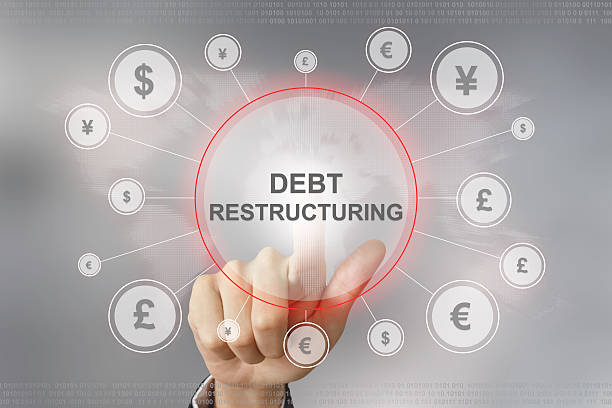It’s easy to get into debt, but it can be very painful and difficult to get back out. It can take just a few years to create tens of thousands into debt, but it takes years and years to pay off that debt. Finding yourself deep in debt can be disastrous. The good note is, getting out of debt is pretty much possible it just takes a little time. While some debts can be unavoidable like, a car loan or mortgage, you can deal with other unnecessary debt that is causing you with huge stress.
Everyone who pays off their debt does it a different way. They often combine strategies to chip away their debt, and they stick with those strategies until the debt is gone. Ask for debt relief help sooner or later. Not only you will better know what you should do also you will have more options available to you.
To get out of debt you need a plan and you need to execute that plan. To help, the Lin International team shares these 5 ways you can approach how to pay off debt and leave some, if not all, of your financial burden behind:
-
- List all of your debts
- List all of your debts
Organizing all the details of exactly what you owe is the first step that would take you closer to dealing with them. Start with making a list of your various debts with their EMIs, debts, and interest rates. This will help you determine the most urgent or costliest debts. Once your most expensive debts are paid off, take all of that money that you were paying on that earlier debt and focus it on the next one most expensive debt, you will leave with your least expensive debt to pay down at very last. This strategy refers to the snowball method by which you will get out of your debt easily and you will feel more enthusiastic as you see your progress.
-
- Always be on time or automate your payments
Committing to pay your debts needs financial discipline. Be sure your debts are being paid on time every month. And the best way is to Set an ECS mandate with your bank to automatically settle all the EMIs on your chosen debt date. Timely payments not only keep reducing your debt through the tenure of the loan, but also save you from late payment dues, avoidable interest, and lowers your credit score. Therefore, avoid making payments manually via cash, cheque deposit, or even net banking. Just save yourself the hassle and automate your EMI and credit card payment.
-
- Too many loans? Consolidate them.
Is it becoming difficult to keep track of all of your loans? Do you have several loans? Consider consolidating them into one loan, which will leave you with just one EMI. Credit cards, personal loans even home loans can provide you with this option that will eventually help you in closing various debts, leaving you with just one loan to track, also this will help you to swap a high-interest loan for a lower interest one, like paying 30% on credit card debt you could instead move to a personal loan that can charges you 15%.
-
- Spend less & pay more than the minimum
No law says you have to make only the monthly minimum payment on your credit card or loan. You can pay more. However, if you pay your mortgage off early, make sure there’s no prepayment penalty. The Flipside of earning is spending less. Ideally, depending on how far out of debt you need to get. You might do both. And there are a lot of ways to save a little that can add up – from eating out one less day a week to skipping your morning coffee out or taking your snacks to the movies rather than paying for a popcorn candy and a soda.
The extra money you save just like any extra you earn- can go straight to paying down your debt.
-
- Create a budget and debt pay-off plan and stick to it
There are many more tips and tricks to sticking to your budget every month. But following “many” is hard. The first step is to minimize a budget and make a note of your income and expenses. This will also help you think of various ways of minimizing your daily expenses. The money that is saved and can be used to clear your debt.
Make an effort to try and secure a secondary job to earn an additional type of income. The idea is to allocate and place your secondary income towards debts to set them quickly and easily. There are several ways with which you can earn an additional income. Find a way that is relevant to your background, knowledge, and skills.








